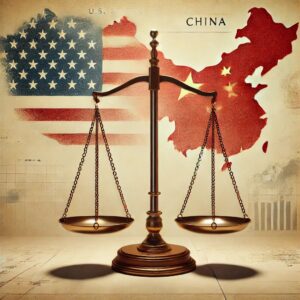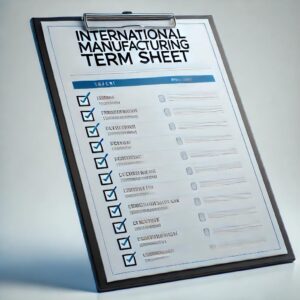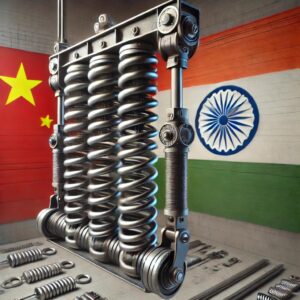China Transaction Due Diligence
My law firm’s international lawyers do a significant amount of transactional work, which we call “happy law.” It’s generally happy because the buyer and seller largely know what they want from the other side, and they have already agreed in principle on what the deal will look like. Both sides bring in transactional lawyers like me to help prepare the various contracts that will be involved. If everything goes smoothly, everyone is pleased at the closing.
The Importance of Due Diligence in Cross-Border Deals
In purely domestic deals, especially where parties are familiar with each other, the buyer will sometimes forgo due diligence except for the most cursory review of financial statements to ensure the target company is viable. In international cross-border deals this never happens because the parties are thousands of miles apart and rarely familiar with each other. There are many unknowns, and the buyer needs to know all of them. See China Due Diligence: Not Optional.
It is in the seller’s interest to be entirely upfront during this process, at the expense of blowing up their own deal. Conducting sufficient and appropriate due diligence will almost always reveal small things like unsigned contracts, contract terms that are not quite what the seller represented to the buyer, or important supply or lease contracts that have expired or will soon expire. Sometimes there are simmering ownership disputes that need to be worked out first.
Due diligence can also reveal major issues that many buyers find troublesome: income tax avoidance, business entities that are unlicensed or exceed the scope of what they are permitted to do, and employees being paid (in whole or in part) under the table to avoid employer and employee side tax requirements.
In the past 12 months our international merger and acquisition lawyers have worked on several deals that fell apart because of what we discovered in the due diligence phase while working for buyers. These deals together make a great case study for what to look for when digging through China company documents.
They are also great case studies for potential sellers with China operations that think Chinese laws and regulations do not matter. I have modified some details to provide you a compilation of the most egregious things we uncovered in our due diligence work this year.
In these cases, the deals were proposed as asset purchases by a U.S. company of another U.S. company, and the primary seller assets to be purchased were its China operations and employees. The sellers used a representative office, not a WOFE/WFOE (wholly owned foreign enterprise, pronounced “woff-ee” and “wiff-oh”).
Red Flag #1: We Don’t Have Any China Office Documents.
When we sent our lengthy due diligence request list to the seller’s attorney, the seller responded that they didn’t have “any China office documents.” I half choked and half chuckled when I read that because I knew the seller must have documentation related to their China office if they had any operations in China.
When we asked whether the seller had a WFOE/WOFE or a representative office, we got nothing but radio silence, probably because the seller had no idea what kind of operation they were running in China. After several prods, it turned out that the seller had a representative office and did have China documents relating to the representative office.
They eventually found a lease, an agreement with FESCO (a third-party hiring agency that contracts with the seller’s China office for their employment needs), and employment and dispatch agreements with each of the seller’s China employees. If we had taken the seller at face value on their first answer, we would not have discovered the problems that ultimately caused our clients to pull the plugs on their deals.
Red Flag #2: We Have a Representative Office, and They Take Care of Our China Operations.
When we asked what role the China employees played within the organization, the seller replied that they performed “all kinds of roles” for the seller and that they were “top-notch employees.” That all would have been welcome news for the buyer except that the seller had a representative office, not a WFOE/WOFE.
A representative office has no separate legal identity in China, and you can only perform limited marketing and market entry activities through a representative office. The representative office cannot enter into contracts, receive payment, or do anything resembling actual business. All Chinese citizens working for a representative office must be hired through employee dispatch agencies (we call these PEOs (professional employer organizations) in the U.S.). See The Slow Death of the China Rep Office
After we learned about the expansive roles the top notch Chinese employees filled within the seller’s organization, it became clear that the seller’s representative office was not compliant with Chinese laws and regulations. We advised our client that they should not want any part of this arrangement and that they should not close until they formed a WFOE/WOFE to properly run its China operations.
Red Flag #3: We Pay Our Employees Partly in Cash.
Then we started comparing the numbers on the employment agreements with the seller’s financial statements, and we noticed some strange gaps between the money flowing into the China operations and the money that was supposed to be paid to the employees. When we pushed for more information, the seller said that they paid part of their employee salaries through FESCO and part of the salaries in cash.
I don’t know what the best way is for a seller to disclose to a prospective buyer that they have been engaging in tax evasion, but the seller did not do it very eloquently or convincingly. The seller shrugged (via email) and said that they intended to start complying with Chinese tax laws soon. They didn’t mention whether they intended to clean up the last 15 years of tax evasion with the Chinese authorities or whether they were sure their Chinese employees would never blow the whistle on that tax evasion (something disgruntled Chinese employees and employees around the world love to do). Or maybe they just expected our buyer to pay the back taxes, interest and penalties. See China’s Tax Authorities Want You.
We reminded our client that whether a company is evading taxes in the U.S. or in China, the taxing authorities are going to bring down the hammer. We advised our clients that this was the largest red flag of all, and they decided to walk away.
In the end, our clients thanked us for our work that allowed them to understand the risks so they could then make the decision how to proceed. Not all of these red flags are fatal, but you need to know how to deal with them when they arise because you do not want to discover these after the closing when they are largely your problem. You may be able to recoup some of your expenses from the seller, but that will depend on how well your purchase agreements were drafted by your lawyer.
Conclusion
The above case studies illustrate the importance of rigorous due diligence in international transactions. While not all red flags are deal-breakers, identifying and addressing them early can prevent major issues post-closing. Proper due diligence allows buyers to make informed decisions and avoid unpleasant surprises.

























